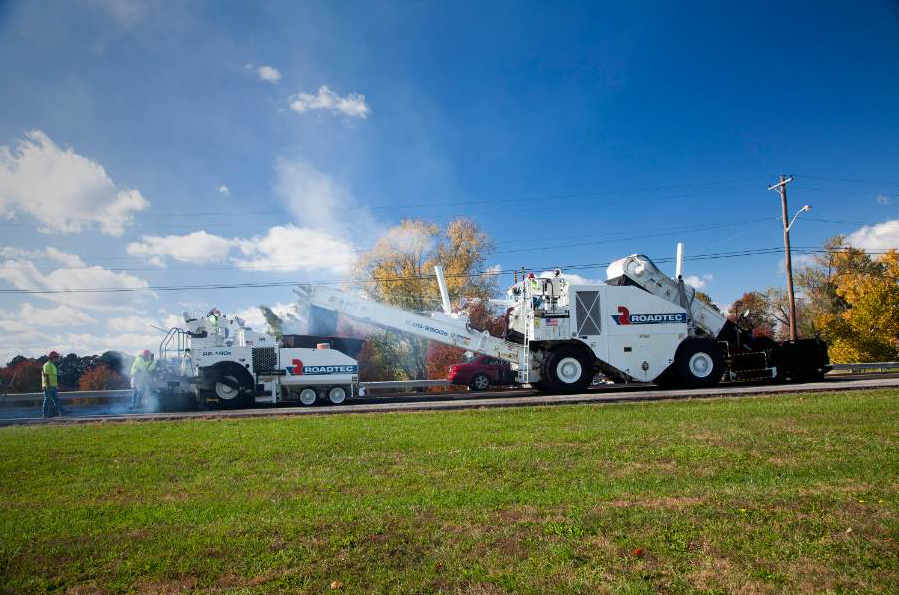Engine Efficiency Offsets Weight Gain
BY AsphaltPro Staff

Business owners within the infrastructure group keep track of where they spend their money and how they can maximize their profit margin by minimizing costs; more and more often, cost-cutting comes with environmental benefits as well. Let’s use the Environmental Protection Agency’s Tier 4 emission standards and the Shuttle Buggy® from Roadtec for an example.
One way to cut costs would be to purchase a more fuel efficient piece of equipment. This is now possible for non-road diesel equipment through the EPA’s Tier 4 emission standards within the United States. With these regulations in place, engine manufacturers have developed ways of reducing their particulate matter down to near-zero levels and reducing the amount of nitrogen oxides, through conversion, that are produced during combustion. With these regulations in place, every bit of fuel is accounted for and efficiently used, thereby improving the fuel economy of the machines that use the new engines.
A past issue of AsphaltPro detailed the enhancements of the SB-2500e material transfer vehicle, which comes standard with a Cummins® Tier 4 final compliant engine. Those enhancements involve increasing component wear life, which is another way to maximize profit, but they also increase the overall weight of the machine. With the more efficient use of fuel, the heavier equipment is still a win.
Upgraded wear components increase the life of the part and machine uptime. Sprockets have more wear surface and the chains have been upgraded to a complete offset design that can withstand a heavier work load. The material that makes up the floor plates is now chromium carbide, which increases the associated expected life of these parts. Patented triple-pitched remixing augers are now a 29-inch diameter design allowing more wear surface than previously available. Particulate and thermal segregation that would otherwise cause early deterioration of the asphalt mat, is reduced by the remixing action of these augers. Not only does this machine save money by extending the life of its wear components, but if used correctly, it can help improve the quality of the mat.
Through the use of Diesel Exhaust Fluid (DEF) it is possible to convert nitrogen oxides into nitrogen and water, both of which are found abundantly in a natural environment. By reducing the environmental impact of the SB-2500e’s diesel engine, it is also helping to reduce contractors’ associated fuel costs. This machine decreases its impact on the environment by using an after treatment system and improved fuel efficiency, and by creating a long-lasting pavement with its enhanced components. Being conscious of environmental impacts is not just an EPA focus; it is important to everyone and allows contractors to get the best bang for their buck.
